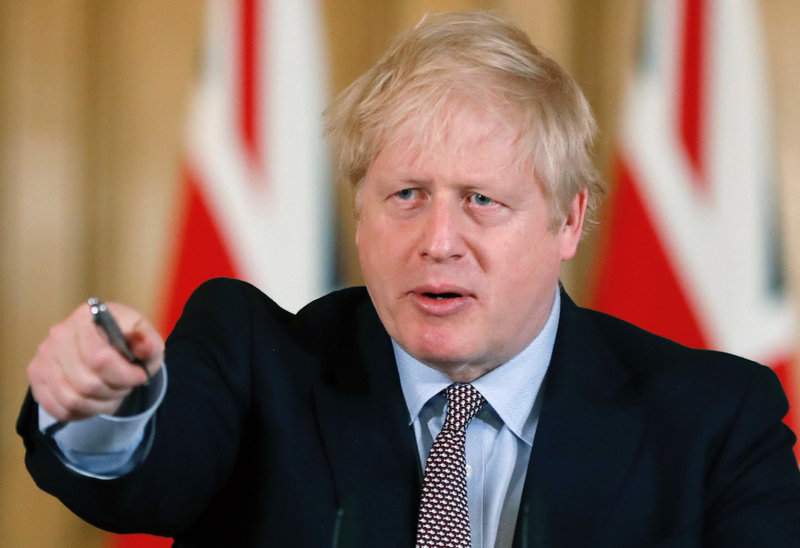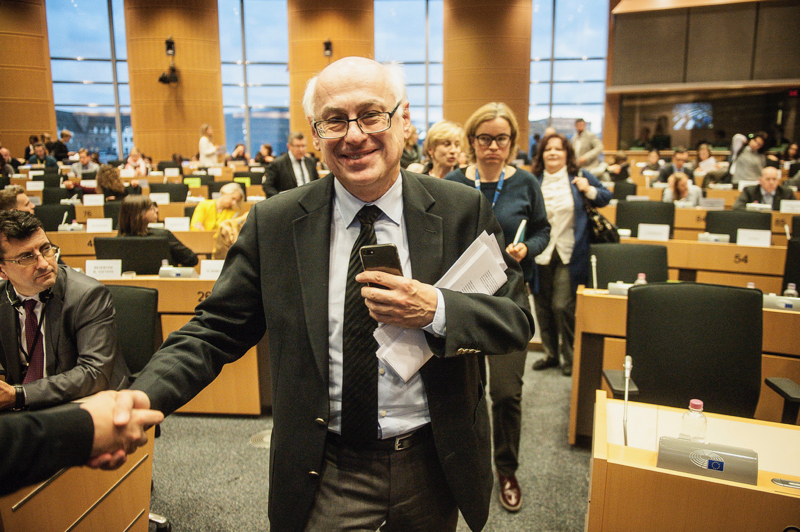Do Polish politicians, diplomats and cultural elites properly present their country when abroad? Or do they brush aside its Catholic character to fall in line with their secular Western counterparts?
These were some of the questions on my mind when I attended the latest Belvedere Forum last week at London's Chatham House, during which 300 participants debated bilateral priorities in the new Brexit era.
Organised jointly by the Royal Institute of International Affairs and its Polish opposite, PISM, the Forum was co-chaired by Sir Malcolm Rifkind, a former Defence and Foreign Secretary, and Professor Zdzislaw Krasnodebski, a senior Polish MEP.
It was sponsored by both governments, each represented by their ambassadors; and it featured top figures from the Labour peer Lord Falconer to Poland's European Affairs minister, Konrad Szymanski.
The forum's aim, according to Chatham House, was to bring together "actors from civil society, politics, business, academia and NGOs", and to "strengthen and deepen the extensive partnership between the two countries by exploring political, economic, social and cultural issues".
"Partnership" remained the forum's watchword; and while its main focus was naturally political and economic, much attention was also paid to shared values and questions around identity and sovereignty.
This was only to be expected. With Poles now making up the UK's largest non-native minority and running over 40,000 enterprises here, alongside the 115,000 Poles employed by British firms in Poland, ties of respect and understanding will clearly be crucial in the post-Brexit environment.
Britain and Poland are among Europe's oldest democracies, with ancient traditions of government by consent. The two countries have never fought and are widely seen as traditional allies, sharing common security and foreign policy objectives, together with a vast web of professional links, friendships and family bonds.
There was, however, one glaring omission from the Chatham House discussions.
Although some 60 scheduled speakers took to the microphones, no one, it seems, had thought to enlist a single representative of the Catholic Church in Poland or of any religious community in Britain. If it was intended as a civil society dialogue, one major element of that civil society was conspicuously absent.
Both Chatham House and the Polish Institute for International Affairs insisted there'd been no room in the programme. But none of the organisers showed any interest in Christian perspectives, even from overwhelmingly Catholic Poland.
So is the professed faithfulness to Catholic tradition, notably by its present Law and Justice government, just a domestic political veneer?
The Polish Church has made great efforts with the million-plus Poles now living and working in the United Kingdom, urging them via its London-based mission to uphold their Catholic identity within their adopted society.
Such appeals have been largely ignored, since Polish Catholicism doesn't function easily when taken out of its domestic context and only a relatively small number of Polish Catholics attend Mass here.
British-born Poles, though enthusiastic about their family homeland, often have little awareness of its religious traditions, while visiting Polish officials, academics and businessmen seem more anxious to conform to the liberal, secular assumptions of Western colleagues than to acknowledge their country's distinctive character.
Though this might hardly matter in the wider scheme of things, it impedes any civil society dialogue. Yet when the Belvedere Forum debated "shared or clashing values", it focused on biodiversity and climate change more than on anything deeper. Christianity was not even mentioned.
Nor was any reference made to contrasting social ethics in Britain and Poland, or to highly charged controversies over abortion, euthanasia, same-sex marriage or gender equality, which have fuelled conflict between Poland and the EU and led to a Polish pushback with complaints of interference. When LGBTQ rights were raised, Poland's conservative stance was derisively brushed aside.
Poland is an important European country, becoming richer and stronger by the day. And while it must honour its EU commitments, the opportunity also exists for special ties with a post-Brexit UK. There can indeed be a valuable partnership between the two countries.
But it must be a partnership based on authentic foundations, which takes proper account of national identities and resists the temptation to sweep inconvenient points of difference under the carpet.
Poland's elites are habitually more comfortable with national symbols than their reticent British counterparts. And while they may not personally feel much sympathy for their country's Catholic traditions, they should at least have the confidence and courage not to ignore or disavow them.
Even the former communist regime acknowledged, however reluctantly, that Poland could not be imagined without its Catholic Church. If today's elites wish to be taken seriously, and to build genuine ties of co-operation with others, they should present their country as it really is, not as they might prefer it to be.



 Loading ...
Loading ...
What do you think?
You can post as a subscriber user ...
User comments (0)